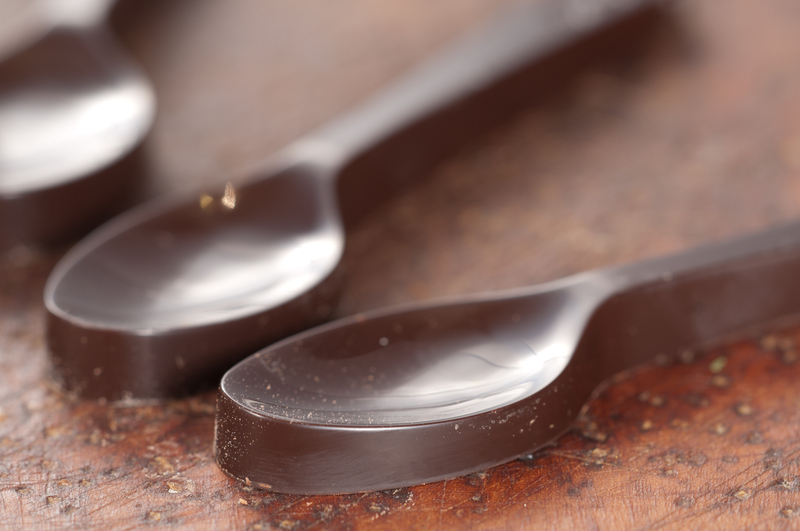Waste Handling: Biodegradable Tips
Posted on 23/09/2025
Waste Handling: Biodegradable Tips
Waste management presents a significant challenge for communities worldwide. With the rising levels of waste generation and the consequent environmental pollution, there is an urgent need for effective waste handling practices. This article delves into essential biodegradable tips to manage waste effectively, promoting sustainability and environmental health.
Understanding Biodegradable Waste
Biodegradable waste comprises organic materials that decompose naturally through microbial processes. These materials include food scraps, paper products, yard trimmings, and other plant-based substances. Unlike non-biodegradable waste, which persists in the environment for extended periods, biodegradable waste breaks down into simpler compounds, replenishing soil nutrients and reducing pollution levels.

The Importance of Proper Biodegradable Waste Management
Effective management of biodegradable waste is crucial for several reasons:
1. **Reduces Landfill Overflow**: Properly handling biodegradable waste minimizes the volume of material sent to landfills, thus extending the lifespan of these facilities.
2. **Cuts Greenhouse Gas Emissions**: Decomposing organic matter in landfills generates methane, a potent greenhouse gas. Composting and other proper biodegradation methods significantly reduce methane emissions.
3. **Enhances Soil Fertility**: Biodegradable waste processed through composting or anaerobic digestion can be converted into nutrient-rich fertilizers, improving soil health and reducing the need for chemical fertilizers.
4. **Promotes Circular Economy**: Efficient biodegradable waste management subscribes to the principles of a circular economy, where waste products are reused and recycled, contributing to a sustainable system.
Biodegradable Waste Disposal Methods
There are several effective methods for disposing of biodegradable waste:
1. **Composting**:
- **Home Composting**: Suitable for households, home composting involves the collection of kitchen scraps, garden waste, and other organic material in a compost bin or pile. Over time, these materials decompose into humus, which can be used in gardens.
- **Community Composting**: Involves collective composting efforts in shared spaces. This method fosters community engagement and results in large-scale compost production.
2. **Vermicomposting**: This method employs worms to break down organic waste more quickly. Worms consume the waste and produce nutrient-dense castings, beneficial for soil enhancement.
3. **Aerobic Digestion**: An accelerated form of composting, where biodegradable waste is decomposed by bacteria in the presence of oxygen, minimizing the production of harmful gases.
4. **Anaerobic Digestion**: Organic materials are decomposed in the absence of oxygen, generating methane, which can be captured and used as a renewable energy source.
Essentials for Effective Composting
Effective composting requires a balance of the following elements:
1. **Material Balance**: A proper mix of green (nitrogen-rich) and brown (carbon-rich) materials. Examples include kitchen scraps and yard waste (greens) paired with dead leaves and cardboard (browns).
2. **Aeration**: Regular turning of the compost pile ensures adequate oxygen supply, facilitating aerobic decomposition and reducing foul odors.
3. **Moisture Level**: The compost pile should maintain a moisture content similar to a wrung-out sponge. Too much or too little moisture can hinder the decomposition process.
4. **Temperature**: Optimal composting occurs between 135 to 160 degrees Fahrenheit. Daily monitoring and adjustments will keep the microbial activity at its peak.
Incorporating Biodegradable Tips in Daily Life
Integrate these practical tips to manage biodegradable waste daily:
1. **Segregate Waste**: Establish a clear waste segregation system in your household, distinguishing between organic and inorganic waste. Proper labeling of bins ensures each type of waste is disposed of correctly.
2. **Zero Waste Cooking**: Practice zero waste cooking techniques by using whole vegetables and fruits. For instance, vegetable peels and scraps can be stored and later used for making stock.
3. **Eco-friendly Products**: Opt for biodegradable products whenever possible. Ditch single-use plastics in favor of compostable items like bamboo cutlery and decomposable paper towels.
4. **Educate and Involve**: Educate family members and friends about biodegradable waste handling. Involving children in composting activities fosters environmental responsibility from a young age.
Challenges and Solutions in Biodegradable Waste Management
Handling biodegradable waste presents certain challenges, but practical solutions exist:
1. **Odor Management**: Unpleasant odors are a common issue with improper biodegradable waste handling. Regular turning of compost piles and maintaining balance between greens and browns mitigate this issue.
2. **Pest Control**: Compost piles can attract pests if not correctly managed. Using lids on compost bins and avoiding meat and dairy waste helps keep pests at bay.
3. **Space Limitation**: Urban dwellers might struggle with space for composting. Solutions include vermicomposting, which requires minimal space, and participating in community composting programs.
Government and Community Initiatives
Governments and communities play pivotal roles in promoting biodegradable waste management:
1. **Policy Implementation**: Governments can enforce policies that mandate biodegradable waste segregation, offer subsidies for compost bins, and support local composting initiatives.
2. **Educational Campaigns**: Awareness programs and workshops educate the public on the benefits and methods of effective waste handling.
3. **Community Collaboration**: Local governments can partner with community organizations to initiate large-scale composting projects, providing infrastructure and technical support.

The Future of Biodegradable Waste Handling
The future presents promising advancements in biodegradable waste management. Technological innovations, such as smart bins that segregate waste automatically and advanced composting systems, will further facilitate efficient waste handling.
Conclusion
Effective biodegradable waste management is an indispensable aspect of sustainable living. By incorporating composting, vermicomposting, and other eco-friendly practices in daily life, and supported by government and community efforts, we can significantly reduce environmental impact and foster a healthier planet.
In conclusion, mastering the art of biodegradable waste handling not only alleviates the burden on landfills but also enriches our soils and atmosphere. By following the tips and methods discussed, we take a crucial step towards a greener future for generations to come.
Latest Posts
Innovations Aiming to Reduce Ocean Waste
Reducing Waste in Christmas Celebrations




 020 3743 9508
020 3743 9508


